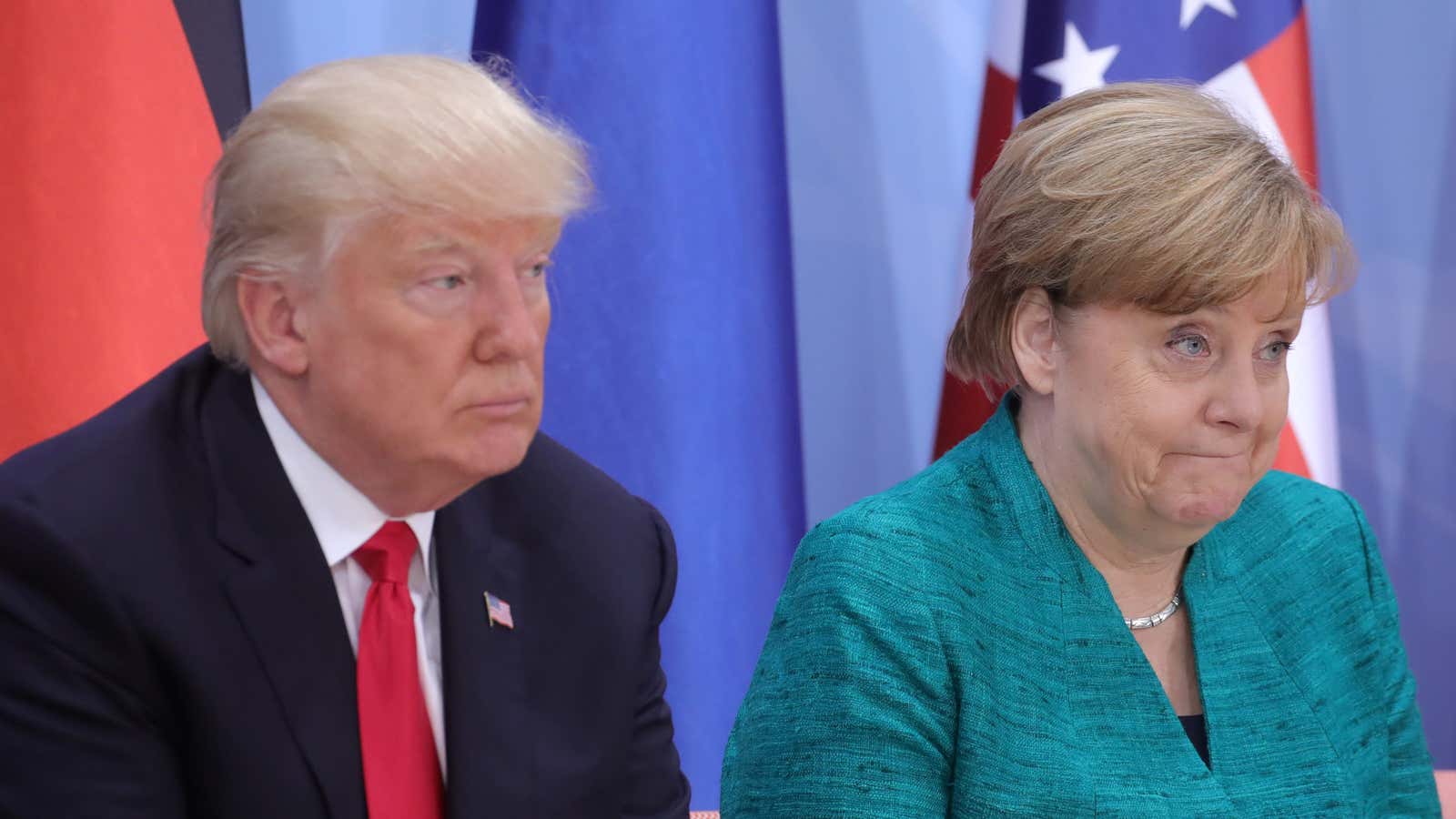Donald Trump announced new stiff tariffs on US steel and aluminum imports on Thursday (March 8), but left the door open for plenty of unilateral negotiations, in his trademark “make me a deal” style.
The US will add a 25% import tax to any batches of steel and 10% to any lots of aluminum shipping from anywhere in the world but Mexico and Canada, he said. However, he will “remain open to moderating and removing the tariffs” from any other countries, as long as we can “agree on a way to insure that their products no longer threaten our security.”
Essentially, Trump is forcing countries to come forward and present him with an alternative proposal if they don’t like his tariffs, which is ot that unusual in private business. But trade deals aren’t traditionally conducted like boardroom ones—these type of tariffs have the ability to reshape economies and global relationships over years. So, will other leaders want to sit across from the US to make such a deal? There are plenty of reasons not to, some trade experts believe.
Non-US governments, and particularly democracies, “are under enormous pressure not to be seen to be caving to the Trump administration,” because of his unpopularity overseas, said Timothy Meyer, an international trade specialist and law professor at Vanderbilt University.
Before the Trump administration can get any deal, it also “has to signal that it’s a credible negotiating partner,” Meyer said. Chinese officials agreed last year with US Secretary of Commerce Wilbur Ross to cut their steel overcapacity significantly—but Trump twice rejected the deal. That “makes everyone wary,” he said. The Trump administration has sent out confusing signals about what it intends to do on trade in recent months, and its practice of threatening allies could be alienating them.
Non-US governments may also be worried about appeasement, Meyer said. “What happens if you give in on steel, what’s the next thing they ask for?” That could make retaliation more likely that negotiation.
The proposed tariffs would impose trade losses on US trading partners that equal to $14.2 billion per year, estimates Peterson Economic International Institute fellow Chad P. Bown. The World Trade Organization allows countries to retaliate by a similar amount, if there is a legal finding that national security was not actually the reason for the tariffs—a position that the Trump administration has already undermined by calling them negotiable.
Canada is the top steel exporter to the US, based both on volume and dollar amount. The European Union is second, based on value, and officials there have already threatened to put tariffs on specific products, like bourbon, Levi jeans, and Harley Davidson motorcycles. After Trump’s announcement, the EU’s trade Cecilia Malmstrom said the trading block was counting on being excluded from the tariffs, and if not would go to the WTO to get permission to retaliate. Brazil’s foreign minister said the country was considering retaliatory actions.
